Disinfectants: what compositions will get rid of coronavirus on your hands and indoors?
Getting infected with COVID-19 is scary for many, if not all. To avoid illness, WHO recommends frequent hand washing and the use of disinfectants. Alcohol at a concentration of 70%, chlorhexidine, bleach, and some other drugs will save you from coronavirus. But acids and alkalis (vinegar and soap) are of little use against it. Find out how to properly disinfect your hands and premises.
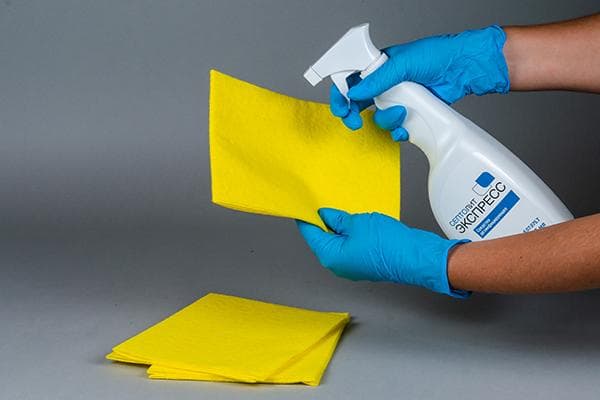
Disinfectants against coronavirus
To become infected with coronavirus, you do not have to come into contact with someone who is sick. An infected person may cough into their hand and then grab the handrail in a vehicle. The virus will remain on the surface and remain active for several hours to a week. Touching an object with your hands and then rubbing your nose or eyes can become infected. Coronavirus can be brought into your home on shoes, clothes or food from the supermarket.
Disinfectants destroy various bacteria, viruses, and fungi. The range of antiseptics is very large. Unfortunately, not all of them work against the new coronavirus.
Today it is reliably known that coronavirus is killed by:
- In 2 minutes – alcohol 70%, chlorhexidine 1%, sodium hypochlorite 0.01%.
- In 5 minutes: chlorhexidine 0.05%, chloroxylenol 0.05%, benzalkonium chloride 0.1%, povidone-iodine 7.5%.
- In 30 seconds - isopropanol 45%, n-propanol 30% and mecetronium ethyl sulfate 0.2%, gels based on 80–95% ethanol.
For hands
Hand disinfection is the first WHO recommendation for the prevention of coronavirus.A person unconsciously touches his face with his hands about 23 times per hour. Therefore, it is important to keep them clean.
It is best to wash your hands with soap and running water. The coronavirus is removed mechanically, and the skin dries out to a lesser extent.
Treatment with aggressive substances negatively affects local immunity. If your hands become covered with cracks or wounds, the virus can easily enter the body.
Wash your hands with soap and use sanitizers on the street or on the road.
Popular hand sanitizers against coronavirus:
- Dettol (RUB 150 for 50 ml);
- Sanitelle (85 rubles for 50 ml);
- Carelax (60 rubles for 50 ml);
- “Lizhen bio” (85 rubles for 50 ml);
- “Diamond Hands-2” (85 rubles for 65 ml);
- “Helios” (255 rubles for 500 ml).
Use hand cream. Be sure to apply it before bed and several times throughout the day to keep your skin healthy and dry.
How to make an antiseptic from improvised means?
You can make your own hand sanitizer. The ingredients are simple; many people have them in their home medicine cabinet.
Recipes published on the WHO website:
- 83 ml of alcohol 96%, 4 ml of 3% hydrogen peroxide, 1.5 ml of glycerin 98%, 11.5 ml of distilled or cooled boiled water.
- 75 ml isopropyl alcohol 99.6%, 4 ml 3% peroxide, 1.5 ml glycerin 98%, 19.5 ml water.
Recipe from Dr. Komarovsky:
- 240 ml alcohol, 15 ml hydrogen peroxide, 5 ml glycerin, 60 ml water.
Other hand sanitizer recipes:
- 70 ml ethanol 96%, 30 ml glycerin, 5 drops essential oil of orange, grapefruit, tea tree or cinnamon.
- 70 ml rubbing alcohol, 30 ml aloe vera gel.
- 95 ml of hawthorn tincture (calendula, chamomile, propolis or another with an alcohol content of 70%), 5 ml of glycerin.
- 70 ml chlorhexidine, 1 tbsp. spoon of ethanol, 1 tbsp.spoon of boiled water, 5 drops of essential oil.
The solution must be poured into a clean spray bottle.
You need to treat your hands with antiseptic for at least 30 seconds. Rub approximately 3 ml of solution into the skin, not forgetting the area under the nails. After this, try not to touch your face for 2-5 minutes.
For indoors
Disinfection of premises is the second key factor in preventing COVID-19 infection.
When carrying out wet cleaning, it is recommended to use:
- Products with sodium hypochlorite (“Beliznu”, “Domestos”, “Sanfor”). For 3 liters of water you will need 3 tbsp. spoons of gel. The solution can be used to wash floors, doors, walls, countertops, chairs, handles, switches and much more.
- Soap solution and 70% alcohol. Delicate surfaces that are sensitive to even small concentrations of bleach are first washed with soap and water and then wiped with alcohol.
Protein contaminants such as saliva, blood, sweat, and excrement significantly increase the viability of the coronavirus. Therefore, it is important not only to disinfect surfaces, but to wash them thoroughly.
If possible, the entire room should be sanitized, from the floor to the furniture and walls. Particular attention should be paid to frequently touched surfaces:
- tables;
- chairs;
- door handles;
- light switches;
- shells;
- toilet.
If a sick person lives in the house, cleaning is carried out twice a day. In this case, protect your hands with disposable gloves, and your face with a mask.
In order for room disinfectants to destroy the coronavirus, you need to wait 2–5 minutes after treatment. Only then can you wipe the surfaces with a cloth soaked in clean water.
The World Health Organization and other medical organizations call disinfection of hands and premises the main means of protection against Covid-19. Effective solutions can be prepared with your own hands or purchased at a pharmacy or household chemicals store. Observe prevention, and let the disease bypass you and your loved ones!
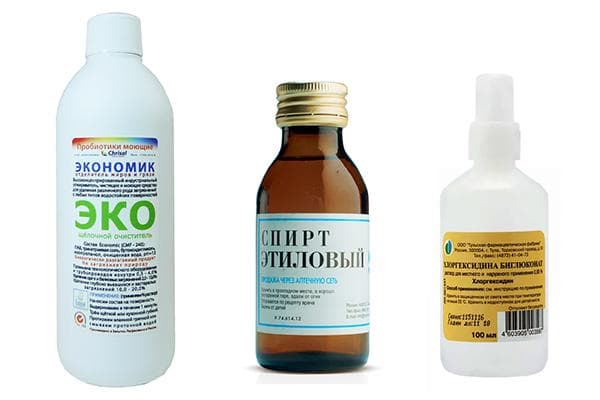
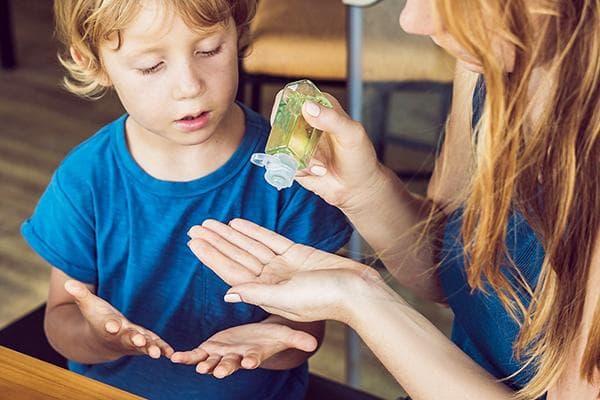
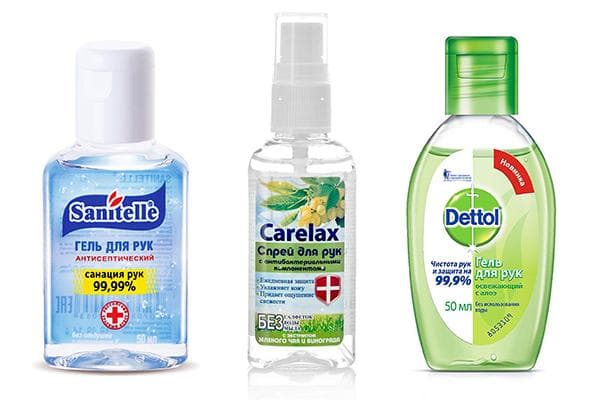
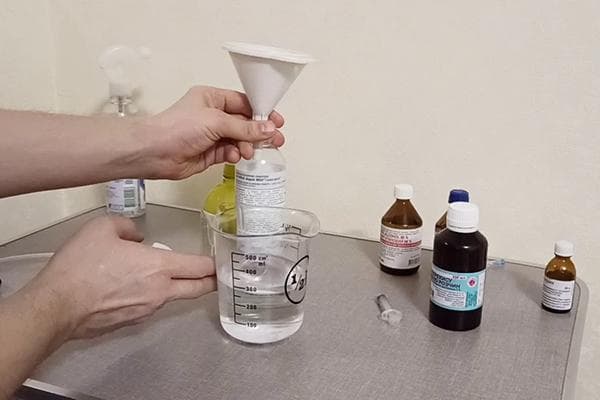
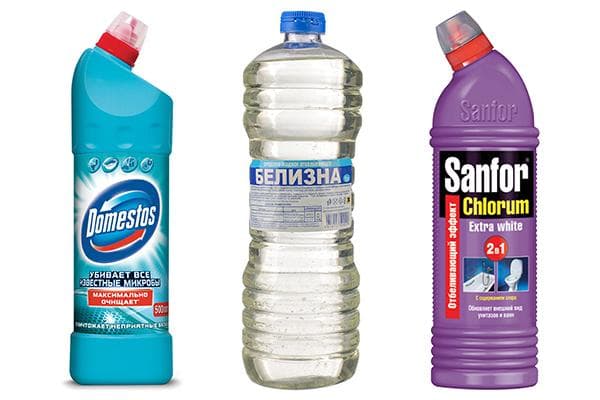
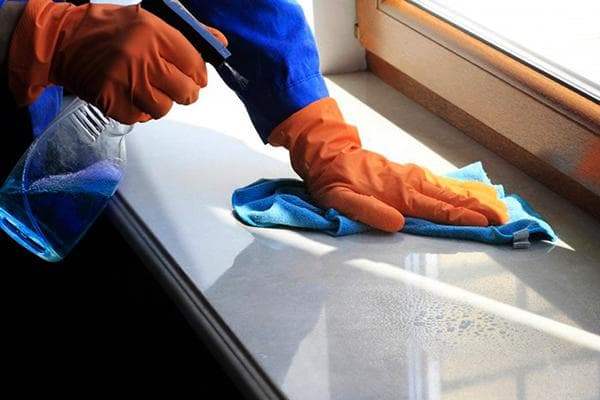
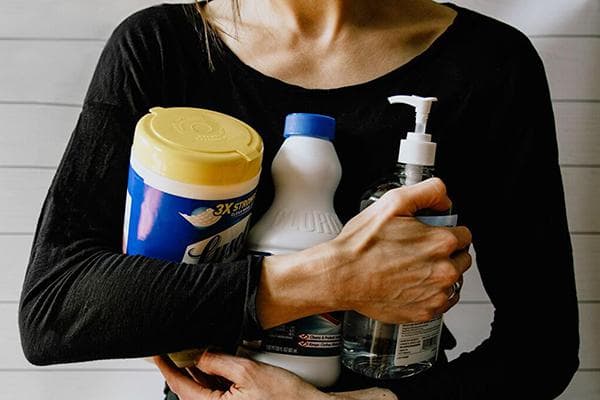
Why did they ban the sale of fanfurikov? Now where can you drink alcohol?